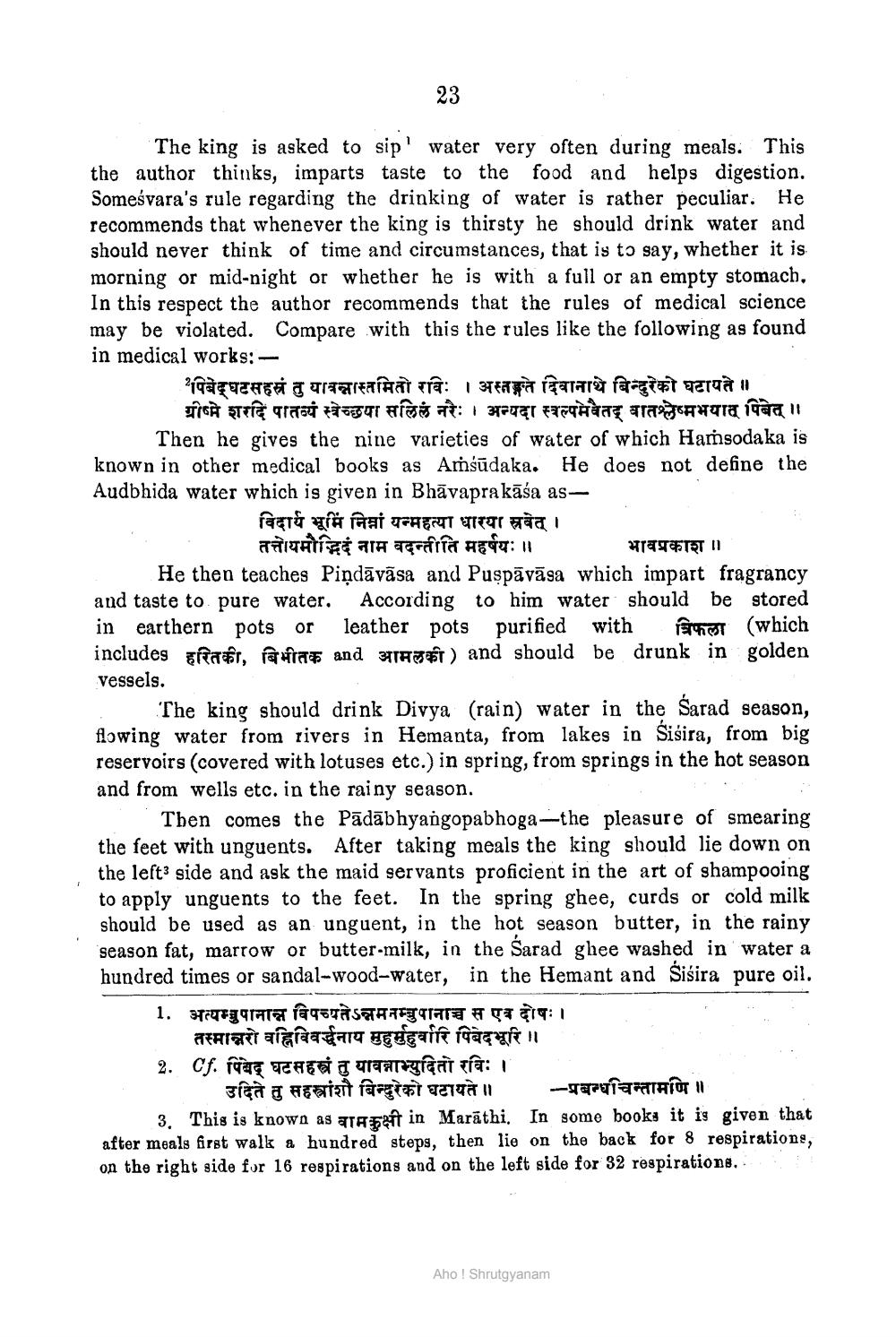________________
23
The king is asked to sip' water very often during meals. This the author thinks, imparts taste to the food and helps digestion. Someśvara's rule regarding the drinking of water is rather peculiar. He recommends that whenever the king is thirsty he should drink water and should never think of time and circumstances, that is to say, whether it is morning or mid-night or whether he is with a full or an empty stomach, In this respect the author recommends that the rules of medical science may be violated. Compare with this the rules like the following as found in medical works: -
पिबेद्घटसहस्रं तु यावन्नास्तमितो रविः । अस्तगत्ते दिवानाथे बिन्दुरेको घटायते ॥
ग्रीष्मे शरदि पातव्यं स्वेच्छया सलिलं नरैः । अन्यदा स्वल्पमेवैतद् वातश्लेष्मभयात् पिबेत् ।।
Then he gives the nine varieties of water of which Hamsodaka is known in other medical books as Amšūdaka. He does not de Audbhida water which is given in Bhāvapra kāśa as
विदार्य भूमिं निम्नां यन्महत्या धारया स्रवेत् । तत्तोयमोद्भिदं नाम बदन्तीति महर्षयः ॥
भावप्रकाश ॥ He then teaches Pindāvāsa and Puspāvāga which impart fragrancy and taste to pure water. According to him water should be stored in earthern pots or leather pots purified with no (which includes हरितकी, बिभीतक and आमलकी) and should be drunk in golden vessels.
The king should drink Divya (rain) water in the Sarad season. flowing water from rivers in Hemanta, from lakes in Sisira, from big reservoirs (covered with lotuses etc.) in spring, from springs in the hot season and from wells etc. in the rainy season.
Then comes the Pādābhyangopabhoga--the pleasure of smearing the feet with unguents. After taking meals the king should lie down on the left side and ask the maid servants proficient in the art of shampooing to apply unguents to the feet. In the spring ghee, curds or cold milk should be used as an unguent, in the hot season butter, in the rainy season fat, marrow or butter-milk, in the Sarad ghee washed in water a hundred times or sandal-wood-water, in the Hemant and Sisira pure oil.
1. अत्यम्नुपानान्न विपच्यतेऽन्नमनम्बुपानाच्च स एव दोषः ।
तस्मान्नरो वह्निविवर्द्धनाय मुहुर्मुहुर्वारि पिबेदभूरि ॥ 2. Cf. fatę HET a rangfaat la: 1
उदिते तु सहस्रांशौ बिन्दुरेको घटायते॥ -प्रबन्धचिन्तामणि ॥ 3. This is known as ata baft in Marāthi. In some books it is given that after meals first walk a hundred steps, then lie on the back for 8 respiratione, on the right side for 16 respirations and on the left side for 32 respirations,
Aho! Shrutgyanam




